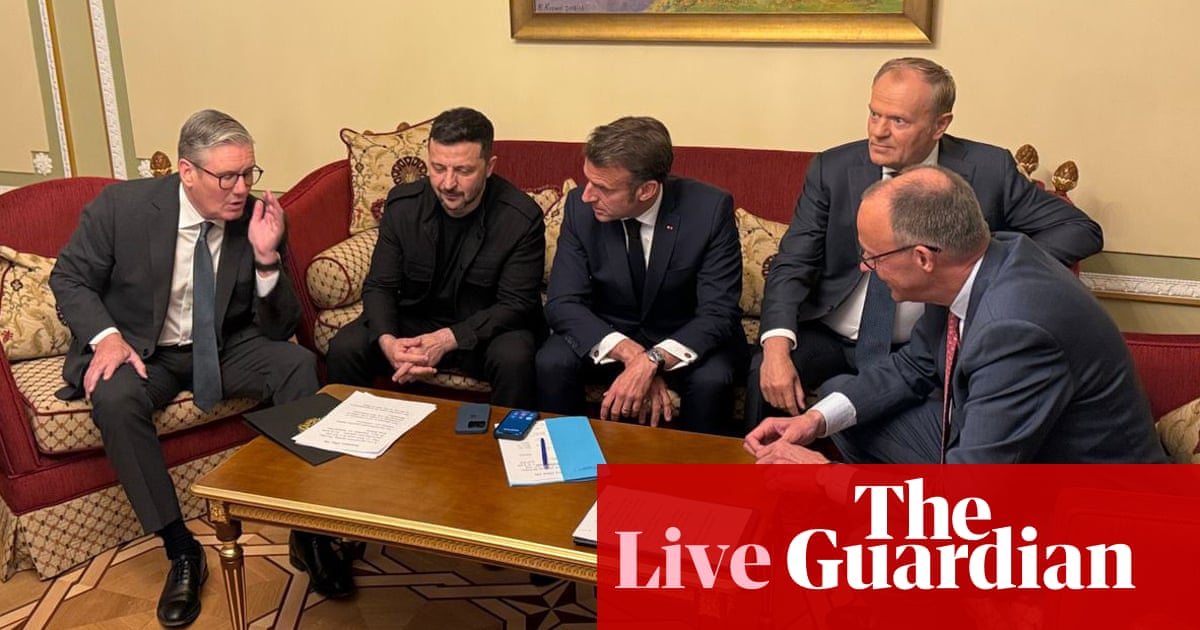Ukraine and European leaders agreed on Saturday to an unconditional 30-day ceasefire from 12 May with the backing of US president Donald Trump, threatening president Vladimir Putin with new “massive” sanctions if he failed to comply.
The announcement was made by the leaders of Britain, France, Germany, Poland and Ukraine after a meeting in Kyiv, during which they held a phone call with Trump.



Haven’t Western nations already been applying significant sanctions to Russia? It’s pretty clear that hasn’t been working, why do they imagine that more of the same will work any better? Oh right, they don’t, they just want to look like they’re doing something useful.
It’s pretty clear you never looked into it. The Russian economy is massively strained, they got huge problems due to those sanctions.
That’s just the normal state of Russian economy
No doubt, but as a mechanism of applying pressure to get them to stop invading Ukraine, I think you’ll have to agree that it’s failed miserably. That’s what I (and most people) mean by ‘working’: accomplishing the intended aim. Huge problems or not, the war continues unabated. Why do you imagine doing more of the same would be any more effective?
Secondary sanctions could cripple Russia. If Europe and the US say trading with Russia means you cant trade with them then China walks away. No two ways about it, China needs markets to sell their stuff, it would be tense and countries would skirt around them but individual companies can no longer operate flights to the UAE because the governments trade with Russia? They dont do enough trade to make that worthwhile, Russia isnt a big enough market for any country who has any passing trade with the EU or US.
Why? Primary sanctions didn’t. The US and Europe effectively crashed out of Russia’s economy for the most part; they lost access to Western banking, Western businesses abandoned Russia in droves, and the oil and gas sales to Europe that Russia is heavily dependent upon have been significantly reduced. Yet they seem to be doing fine, so what’s left?
Also, why on earth would China walk away from trade with Russia? It’s pretty clear the US-led world order of trade is falling apart and China hasn’t been the one begging for trade deals over here, they seem fine to just write us off and go on about their business elsewhere in the world, I doubt they would have any compunction about doing the same to Europe if it came to that (which I doubt it will.)
The total amount of Chinese trade with Russia is less than the deficit Europe has with China. Secondary sanctions would mean they lose access to the EU which is about 4 times the population size of Russia, and same again for the US. China is pragmatic, and they don’t want that difficulty in favour of propping up a failing regime.
Yeah the Trump regime is stupid and cant handle international relations. Why would China engage.
China will call their bluff because the EU and America are heavily reliant on China.
Especially Europe where the population will directly elect another politician whenever they feel slightly economically inconvenienced by the current one.
Im sorry the Europeans are the ractionary electorate?
The Americans will have to wait another 3 years.
For president, the house is every two and Senate has a third up for reelection every two years.
Its a shithole country with fantasies of monarchy, lets not pretend they are showing stability because Europe has different dates for elections.
Ah yes, opposed to the US where the morons elect a fascist even without the economy being in trouble
The US doesn’t have elections for another 3 years TM
They do, it’s called Midterms